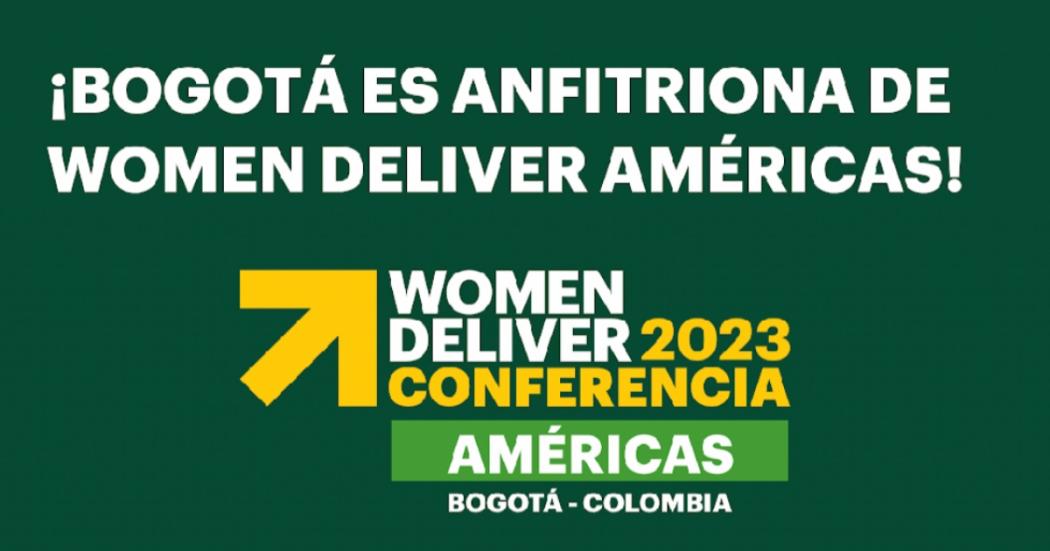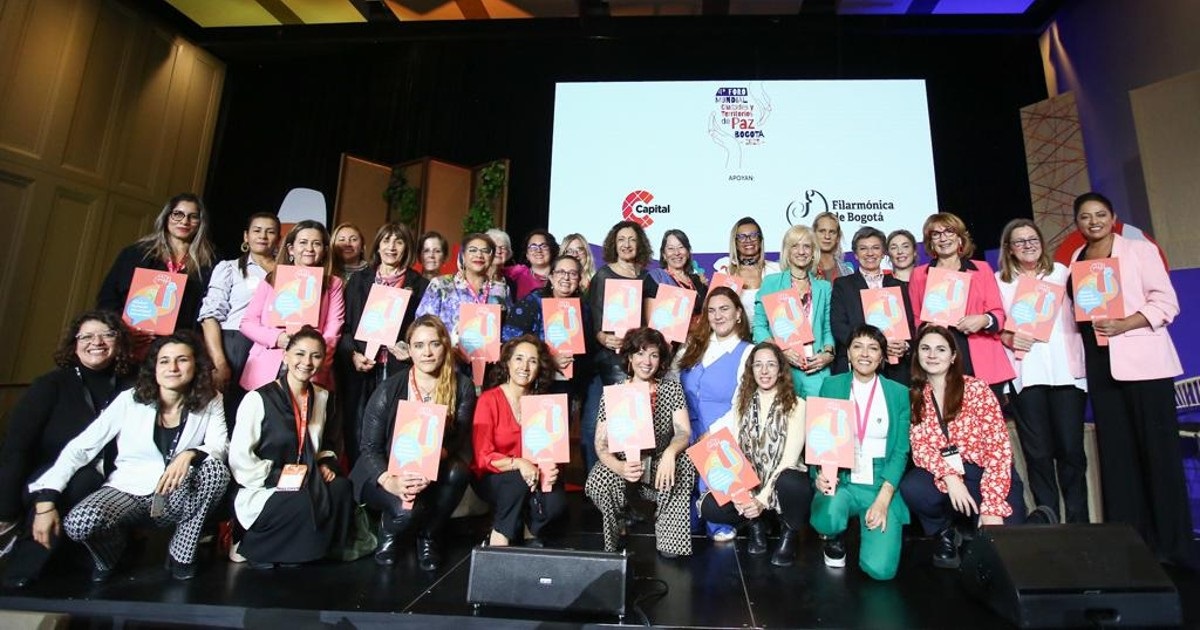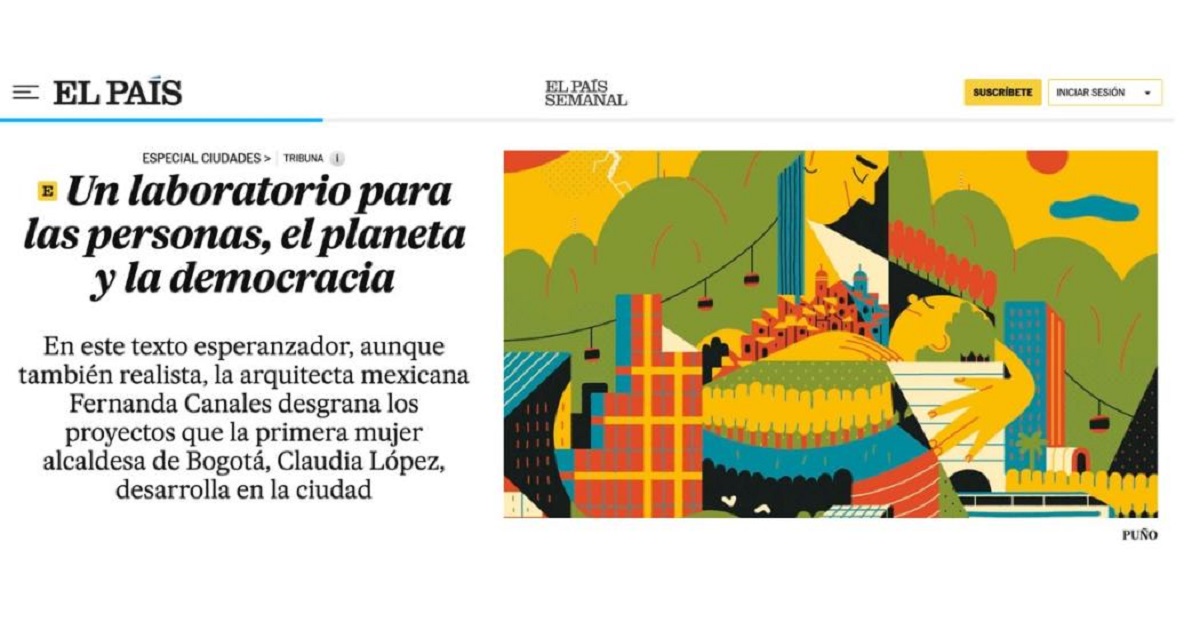Bogotá has been chosen by the global organization Women Deliver as a partner and first America's regional host of the world's largest gender conference.
The Colombian capital is the host of the regional conference taking place on June 29th and 30th at the Gran Hyatt Hotel, in recognition of the progress that has made in women's issues and gender equity.
This gathering, titled "Re-imagining the Feminist Future" will revolve around four thematic areas: the future of care and time policies,cultural change for the prevention of gender-based violence, sexual and reproductive rights, and the feminization of politics.
Women Deliver is one of the leading global organizations advocating for the rights of girls and women. Since 2007, it has brought together a wide range of stakeholders worldwide to promote gender equality.
As a regional partner of this organization, Bogotá will lead the conversation on gender-focused public policies in the Americas, setting the stage for the Women Deliver 2023 global conference, which will take place in Kigali, Rwanda, Africa, in July of this year.
In this tweet, the Secretary of Women's Affairs, Diana Rodríguez, discusses this conference in Bogotá:
🟢¡@Bogota es sede regional de la conferencia @WomenDeliver Américas 2023 #WD2023!
— Secretaría de la Mujer (@secredistmujer) June 27, 2023
El 29 y 30 de junio, expertas y expertos de diferentes países aportarán al debate en temas claves para la garantía de los derechos de las mujeres.
¡Inscríbete gratis!👉 https://t.co/DI2IKyhQA1pic.twitter.com/EpK328kfjG
During June 29th and 30th, Bogotá brings together mayors, women leaders, NGOs, academia, governments, and international experts in this world level conference to open spaces for discussion, reflection, and exchange of experiences around gender-focused public policies, innovations, and strategies.
Agenda for the first day: June 29th
The day begins with a virtual conversation between Mayor Claudia López and economic theorist Mariana Mazzucato. Then, the delegations will visit the Care Blocks in the Centro-Lourdes and San Cristóbal-Juan Rey areas. During this guided tour, participants will have direct contact with the communities, explore the facilities,
understand the operation of the Care Blocks, and engage in conversations with coordinators and caregivers on the ground.
In the afternoon, Mayor Claudia López Hernández of Bogotá participates in the keynote panel: "Women Mayors in Power and the Feminization of Politics", alongside Mayor Carolina Cosse Garrido of Montevideo, Uruguay. The mayors will discuss their achievements, challenges, and the importance of women in regional politics. Each will share their experiences, knowledge, and perspectives on female empowerment, city leadership, and gender policies as the core of public administration. The moderation of this session will be led by Gabriella Gómez-Mont, Founder and CEO of Experimentalista.
Later on, Diana Rodríguez Franco, Secretary of Women's Affairs in Bogotá, will host the panel "A Feminist City?", a debate about the implications, scope, challenges, perspectives, and possibilities of a feminist city. The participants in this conversation will include Gabriela Jáuregui (Mexico), a writer, feminist activist, editor, and screenwriter; Sonia Ruiz (Spain), Director of Gender Services and Time Policies at the Barcelona City Council; Lorena Zárate (Argentina), founder of the Global Platform for the Right to the City; Ana Falú (Argentina), an architect and urban planner recognized for her work in sustainable urban development and gender equality; and Ammy Rosenblum-Martin (United States), a curator and art historian.
Closing the day, there will be a session titled "Bogotá Case: Can a city re-imagine itself around care?" Mayor Claudia López Hernández and secretaries from her cabinet will present the projects they are jointly working on to re-imagine and rearticulate a mega-city around the care. This includes the highly acclaimed Care Blocks as well as environmental, mobility, and planning policies and projects that benefit women. Emilia Saiz (Spain), Secretary-General of United Cities and Local Governments (UCLG) will introduce the session.
The closing ceremony for the day features the Bogotá Women's Philharmonic Orchestra, which brings together women to continue their musical training, experience orchestral performances, and showcase their excellence in various instrumental formats. This ensemble recognizes the contributions of women who have been performers, composers, and conductors throughout history in the world of classical music.
Agenda for the second day: June 30th
On this day, the international gathering will be divided into labs in the morning and parallel sessions in the afternoon.
These labs are high-level working tables composed of policymakers, experts, creative thinkers, and innovators from various sectors. Their aim is to stimulate critical and creative reflection to define the most urgent and necessary questions for addressing the future and adapting to emerging changes and trends. The most relevant learnings, ideas, and questions will be shared at the Women Deliver global conference in Kigali, Rwanda, from July 17th to 20th this year.
Themes for the Labs:
- A Care System for the Future (linking national and urban legal frameworks, feminist economics, public policy, territorial innovation, community care, demographic changes)
- Architecture for collective life (Care territorialization, the spatial component of care, the future of Care Blocks, and other possibilities for collective life through architecture and design)
- Overcoming the naturalization of violence (strategies for cultural change, public policies to support and address trauma, gender-based violence, reproductive and sexual rights, human rights, social justice, new pedagogies, and narratives)
- Beyond decriminalization (Technical workshop where justice sector officials will discuss the legal framework of voluntary termination of pregnancy (IVP), data on criminalization, and the update of the Prosecution Directive aimed at discouraging prosecution and reviewing criminalization processes.
In the afternoon, the panel "Towards an Integrated Care System: The Next Evolution" will take place, discussing the creation and implementation of Care Systems in the region. Experts who have actively participated in the development of public policies will engage in dialogue in this panel, including Valeria Esquivel (Argentina); Julio Bango (Uruguay); Natalia Moreno (Colombia), and María Caridad Araujo (Ecuador), with moderation by Ricardo Fuentes Nieva (Mexico).
Following that, parallel sessions will be held:
- Latin America in Conversation: Micro-politics and Innovation from the Territory.
- Innovative Actions for Cultural Transformation and Denaturalization of Gender-based Violence against Women.
- Balancing Care for People and Care for the Planet.
- Sexual and Reproductive Rights: A Regional Perspective on the Decriminalization of Abortion.
To conclude the academic day, the panel "When the City Knocks on the Door of the Home" will take place. It will be a conversation about how public policy impacts even the most intimate spheres of the home, understood as a place of rest. However, for millions of women around the world, it represents the opposite – a place of daily, intense, invisible, and unpaid work. This panel will feature experts such as Tatiana Bilbao (Mexico), Marisa Morán Jahn (Ecuador + USA), Farzana Khan (United Kingdom), Laura Pérez Castaño (Spain), and Arturo Escobar (Colombia), with moderation by Diana Rodríguez Franco (Colombia), District Secretary of Women's Affairs in Bogotá.
The event's installations, as well as the most prominent panels and discussions on the agenda, will be live-streamed by Capital tv nerwork so that more people can learn about the thoughts of these influential figures regarding the direction of gender-related issues in the region and the world.









